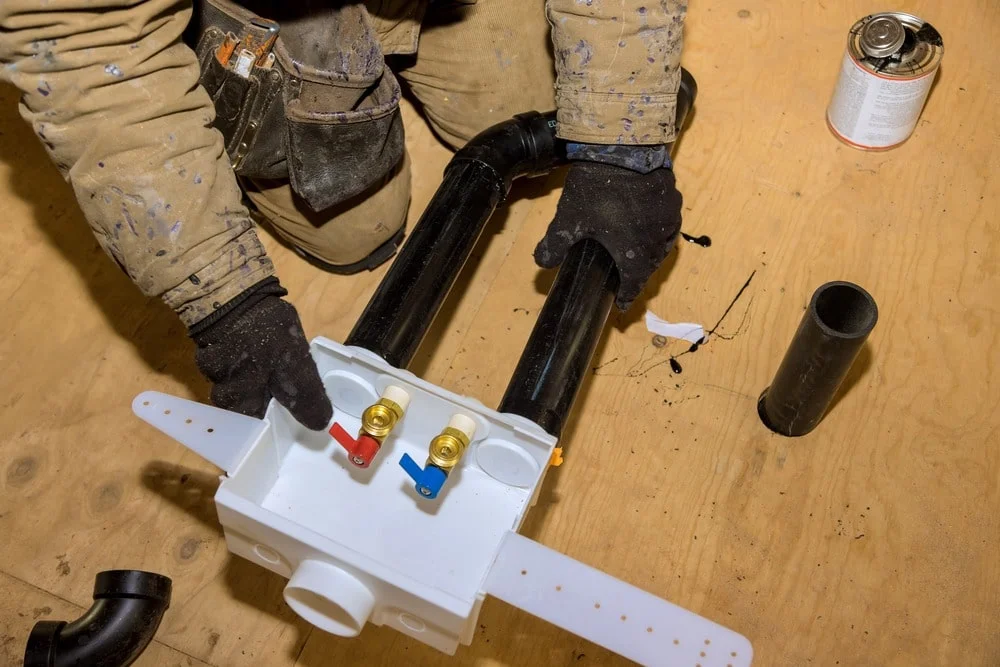Water Heater Permit in Texas: Requirements, Costs & How to Apply

A water heater is an essential component of any household, supplying hot water for bathing, cooking, and cleaning. However, before you install or change one in Texas, you must first obtain the necessary licenses. Many people ask, “Do I need a permit to replace a water heater in Texas?” The solution is not always clear. Texas has strict requirements for water heater installations, and failure to comply might result in penalties, safety issues, or complications when selling your house. This article will help you through the whole process of obtaining a water heater permit in Texas and being compliant.
Do You Need a Permit to Install or Replace a Water Heater in Texas?
Texas Plumbing Code and Water Heater Regulations
Texas strictly enforces plumbing rules to guarantee safety and appropriate installation. Texas’ water heater installation code specifies requirements for adequate venting, pressure relief valves, expansion tanks, and seismic straps. You must adhere to these criteria, whether installing a new unit or replacing the present one.
Why Water Heater Permits Are Required
Permits are more than simply paperwork; they help to guarantee that water heaters are installed securely. A Texas plumbing permit for a water heater guarantees that gas connections, venting, and pressure systems are properly handled. This avoids problems such as gas leaks, carbon monoxide poisoning, and water damage.
Who Can Apply for a Water Heater Permit? (Homeowner vs. Licensed Plumber)
In rare situations, homeowners can apply for permit requirements for water heaters in Texas themselves. However, many localities require a licensed plumber in Texas to obtain permission to carry out work. If you are unsure, contact your local building department.
Water Heater Installation Projects That Require a Permit
Replacing an Existing Water Heater
Even if you’re replacing an old unit with a similar one, you’ll typically need a permit to comply with water heater replacement regulations in Texas.
Installing a New Tank or Tankless Water Heater
A permit is always required when installing a water heater where one did not previously exist, whether it be a typical tank type or a tankless device.
Changing the Fuel Type (Gas to Electric or Vice Versa)
When swapping from gas to electric or vice versa, plumbing and electrical connections must be modified, which necessitates a permit and inspection.
Moving a Water Heater to a Different Location
Relocating a water heater entails modifying water supply lines, venting, and, in certain cases, gas lines—all of which require a permit to ensure appropriate installation.
Upgrading to a Larger or More Powerful Unit
Installing a larger or higher-capacity water heater may necessitate improved pipes, electrical work, or venting adjustments, all of which require a permit.
When a Permit May Not Be Required
Minor Repairs and Routine Maintenance
Minor repairs, such as repairing a leak or changing the thermostat, often do not require a permit.
Replacing Water Heater Parts (Anode Rods, Thermostats, etc.)
Small components such as heating elements, thermostats, or anode rods can be replaced without a permit as long as the operation does not alter plumbing connections.
Flushing or Draining the Water Heater
Routine flushing to eliminate silt accumulation is a simple maintenance that does not require a permit.

How to Apply for a Water Heater Permit in Texas
Where to Submit a Water Heater Permit Application
Homeowners and plumbers must apply via their respective city or county building departments. Check with your local municipality since each has its own set of restrictions.
Costs and Processing Time for Permits
The cost of a water heater permit in Texas varies but often ranges between $50 and $200. Processing times might range from a few days to a number of weeks, depending on local requirements.
Inspection Requirements After Installation
Most localities need an examination to ensure compliance with the Texas plumbing permit for a water heater. This ensures safety and correct installation.

Consequences of Installing a Water Heater Without a Permit
Fines and Penalties for Unpermitted Work
If you install a water heater without the proper permits, you may face significant fines and be obliged to repeat the job legally.
Safety Risks and Code Violations
Improper installations can cause severe gas leaks, pressure buildups, and even explosions. Permits guarantee that everything is done properly.
Impact on Home Insurance and Property Value
Unpermitted work may cancel your home insurance coverage and cause problems when selling your house. A failing inspection might affect the value of your house.
Texas Water Heater Installation Safety Requirements
Proper Venting for Gas Water Heaters
Gas water heaters require adequate venting to prevent carbon monoxide accumulation. Incorrect ventilation may be fatal.
Temperature and Pressure Relief Valve (TPR) Compliance
The TPR valve avoids excessive pressure accumulation within the tank. It must be properly installed and operational.
Expansion Tank Requirements
Texas standards frequently need an expansion tank to accommodate water pressure fluctuations, particularly if your property has a closed plumbing system.
Earthquake Straps and Secure Mounting Guidelines
If you reside in an earthquake-prone location, you must use earthquake straps to secure the water heater.
FAQs About Water Heater Permits in Texas
Do I need a permit to replace my water heater myself?
Yes, in most circumstances, even a simple replacement requires permission.
Can a homeowner install their own water heater in Texas?
Yes, but some cities require a licensed plumber to pull the permit and complete the installation.
How much does a water heater permit in Texas cost?
It varies by area wise, but often ranges between $50 and $200.
How long does it take to get a permit for a water heater?
Permit approval might take anywhere between a few days and two weeks.
What happens if I install a water heater without a permit?
You may face penalties, safety concerns, and issues with house insurance or property sales.
Do I need an inspection after replacing my water heater?
Yes, inspections are usually necessary to ensure code compliance and safety.
Need a Licensed Plumber for Your Water Heater Installation?
When it comes to installing or repairing a water heater, permits and safety requirements are important. Cutting shortcuts can result in penalties, dangers, and insurance issues. Dinomite Services is here to assist you in getting the job done correctly. We handle the requirements for water Heaters Permit in Texas and guarantee that everything is installed safely and properly.
Need a professional plumber? Contact us immediately! Dinomite Services is ready to help you with any water heater installation needs in Texas.
